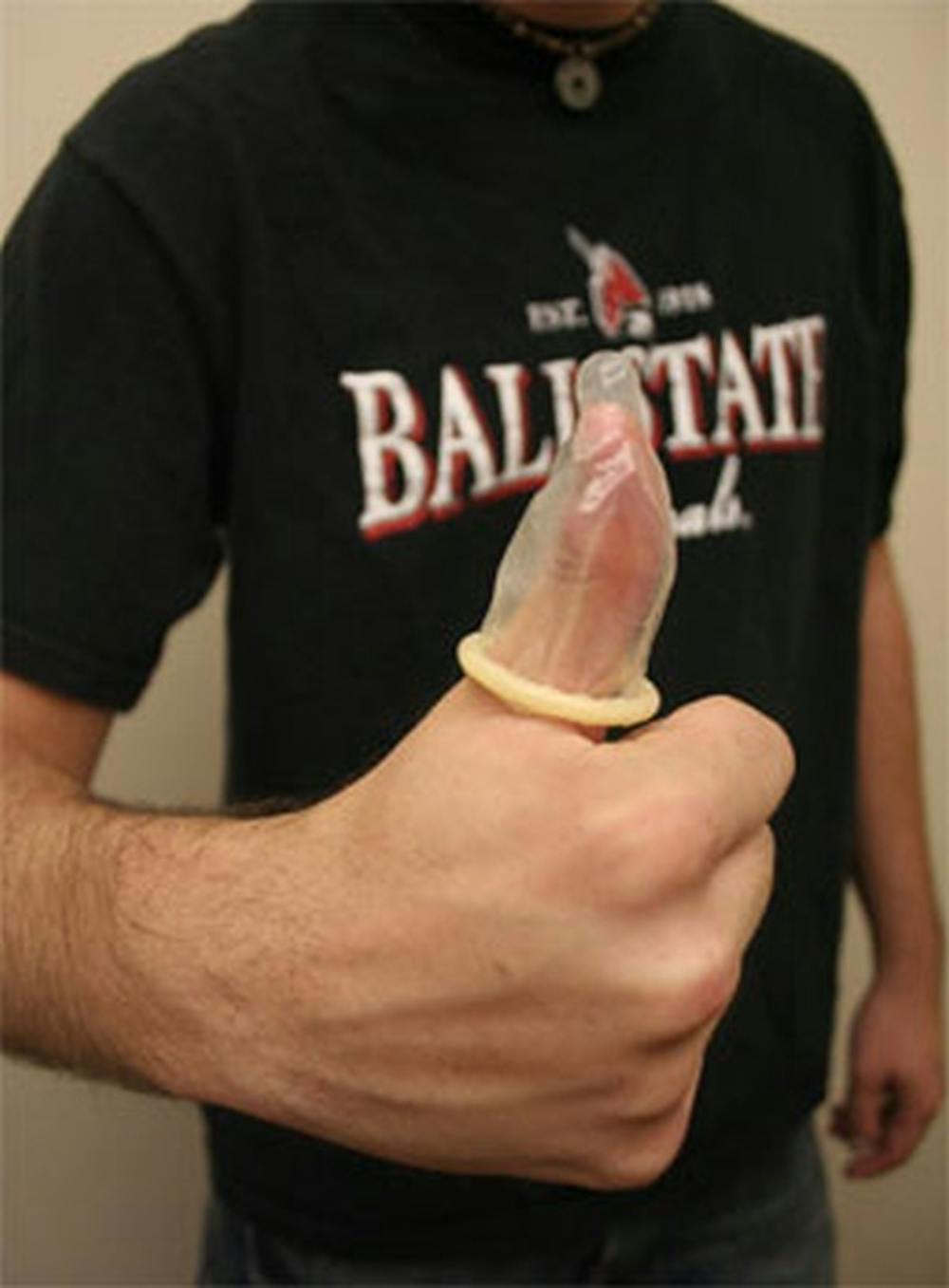Grades were distributed recently to colleges and universities across the country, and Ball State University earned a 2.91 grade point average when it comes to sexual health, according to a study released by Trojan Brand Condoms.
The 2007 Sexual Health Report Card evaluated 139 schools across the country. Colleges and universities from every state were represented and they were chosen by their size and "general level of familiarity to the public," according to a news release about the report card. Ball State ranked 62 on the list.
The GPA was calculated using 11 categories based on the availability of sexual health resources, according to the survey.
However, Health Center officials at Ball State and Purdue University said they question the validity of the survey because they were not contacted by Trojan for interviews about their programs nor did they fill out any surveys.
Ball State's Kent Bullis, medical director of the Amelia T. Wood Health Center, and Lisa Thomason, health educator, said they did not know about the report card and did not know with whom the research firm spoke.
Nancy Maylath, Purdue's director of the Student Wellness office at the health center, speculated that the research firm only used schools' Web sites to gauge how well or poorly sexual health was addressed at the university.
Like Bullis and Thomason, Maylath and her co-workers were unaware of whom was spoken to regarding the university's sexual health education programs.
Sperling's BestPlaces conducted the research, according to the survey. It is best known for ranking the Best Places to Live.
Officials from Sperling's were unable to be reached for comment.
Trojan sponsors college media roundtables to evaluate the state of sexual health education at colleges around the country, said Jim Daniels, Trojan's vice president of marketing.
The first roundtable was held three years ago, he said, and that prompted the idea of conducting a survey about sexual health. Daniels said the report card has been generated for two years so far and will continue to be done annually.
"We think the ratings are a way people can stop and reflect on the services being offered for students and really take that opportunity for self-assessment," he said.
The overall goal of the survey is to stimulate conversations among students and administrators about the state of sexual health at a given university, he said.
Trojan's Sexual Health Report Card is part of its Evolve campaign that aspires to alter the nation's and society's perspectives about condom use, Daniels said.
The report card gave Ball State low marks in providing anonymous advice via e-mail and in providing a sexual awareness program. Aside from those areas, Ball State received A's and B's.
The B- outcome is not a complete surprise, however, Professor of Health Science Jeff Clark said.
"I think there's a lot of things we could do better," he said.
Courses exploring sexual health could improve the university's ability to distribute information to all students, Clark said. Although some courses explore sexual health, he said students' majors often determine if they will be exposed to those classes.
Thomason said she has worked diligently for four years to educate Ball State students about sexual health.
Health Education offers information about its outreach programs to faculty, staff and resident assistants, she said. University clubs, student organizations and sororities have hosted sexual responsibility courses, Thomason said.
In the outreach programs, she said she tries to emphasize the positive element of sexual health. Communicating with a sexual partner, talking about sexual desires and being proactive with preventative health care are elements of sexual health that are often glossed over, she said.
However, STD and HIV testing are still important in ensuring complete sexual health, Thomason said. Free and anonymous HIV tests are available for students on Tuesdays between 1 p.m. and 4 p.m.
Syphilis, chlamydia and other STD tests are also available at the Health and Women's centers.
"In general, [people should] recognize that sexuality is a normal part of everyone's life," Thomason said. "It's not bad, and it's not dirty."
BSU gradesCategories evaluated:
- Hours of Operation: B
- Drop-ins/Appointments: A
- Separate Sexual Awareness Program: C
- Contraceptives, condoms free: B
- HIV testing: A
- STD testing: A
- Anonymous advice via e-mail, columns: B
- Student Peer Groups: B
- Sexual Assault Programs:B
- Web site: B



